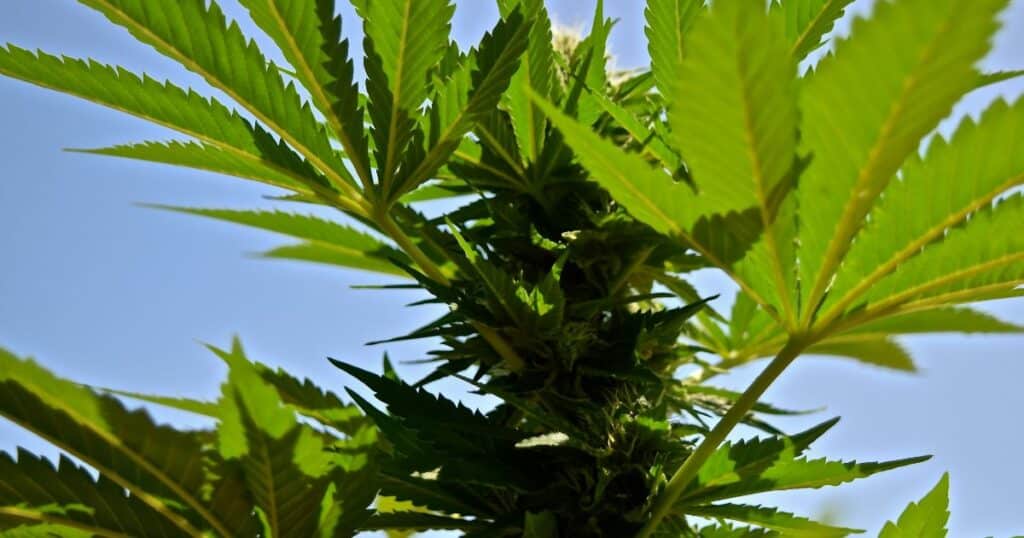The Controlled Substances Act (CSA) is a federal law that prohibits the use, possession, manufacturing, and distribution of certain substances. Under this law, cannabis has been classified as a Schedule I drug since 1970. This means it is considered to have no currently accepted medical use and a high potential for abuse.
Last year, President Biden requested that the Department of Health and Human Services (HHS) and the Drug Enforcement Administration (DEA) review how marijuana is currently scheduled under federal law. Recently, HHS has sent its findings to the DEA, recommending that cannabis be reclassified from a Schedule I drug to a Schedule III drug.
The DEA has received the recommendation from HHS and is now beginning a review process. Until this review process is completed, it remains unclear whether or not marijuana will actually be rescheduled under federal law. If cannabis were reclassified as Schedule III, it would have far-reaching impacts on the cannabis industry, both good and bad. Opening up the possibility of increased access to medical cannabis in many areas of the country and more pathways for research.
Pros of Rescheduling
If cannabis were to be rescheduled as a Schedule III controlled substance, it would have several potential benefits.
One of the biggest potential pros is increased access to medical marijuana. The current federal classification of cannabis makes it difficult for patients in certain states with medical marijuana programs to obtain their medicine. Rescheduling could open up more opportunities for safe access and allow medical cannabis to be more accessible to those who need it.
Another potential pro is that rescheduling could open up pathways for research into the potential benefits of cannabis. Due to its current Schedule I status, it can be difficult for researchers to receive approval and funding to study marijuana in a meaningful way. If reclassified as a Schedule III drug, there would likely be more opportunities for researchers to explore the potential therapeutic benefits of cannabis.
The rescheduling of cannabis to Schedule III could also significantly impact state cannabis laws. Currently, 23 states and D.C. have enacted laws regulating the nonmedical use of marijuana for adults. However, because it is still federally illegal, those states are restricted in certain ways when it comes to their cannabis regulations. For example, they cannot create a state-level market that is allowed to engage in interstate commerce. If cannabis were to be reclassified as Schedule III, it could potentially open up more opportunities for states to pass and enforce laws related to cannabis. This could bring some much-needed clarity and stability to the industry and would likely lead to an increase in access to medical marijuana as well as jobs related to the industry.

The potential rescheduling of cannabis to Schedule III could also have a significant political impact. While the majority of Americans now support legalizing marijuana, there are still some politicians who oppose it. If cannabis were reclassified as Schedule III, it could create a more favorable political landscape for those who favor legalizing cannabis and those who want to see it regulated and taxed like alcohol. It could also lead to debates on the federal level around marijuana reform, as well as create opportunities for politicians to take leadership positions on the issue.
If cannabis were to be reclassified as a Schedule III drug, it could also have an impact on federal employees. Currently, anyone who works for the federal government is prohibited from using marijuana, regardless of whether or not it is legal in their state. If cannabis were to be reclassified as Schedule III, this could potentially open up more opportunities for federal employees to use marijuana, as long as they are in compliance with state and local laws. This could be a significant step forward for those who have been fighting for the legalization of marijuana and for federal employees who want to use cannabis without fear of reprisal from their employers.
Rescheduling cannabis to Schedule III could also affect international standards surrounding its use. Currently, many countries have laws that prohibit the use of marijuana. If cannabis were to be reclassified as Schedule III, it could potentially lead to easing these restrictions and create an opportunity for further international collaboration on drug policy reform.
Despite all of the potential benefits that rescheduling cannabis as Schedule III could bring about, there are still some significant cons worth considering.
Cons of Rescheduling
One of the biggest cons to rescheduling cannabis as Schedule III is that it would remain federally illegal. This means that its use and sale would continue to be prohibited on a federal level, regardless of whether or not it is legal in certain states or regulated at the state level. This could lead to conflicts between federal and state laws and create confusion for businesses operating in the cannabis industry.
Another potential con is that rescheduling cannabis as Schedule III could limit states’ rights regarding cannabis regulation. Currently, states have a lot of freedom when it comes to regulating marijuana under their own laws. If cannabis were reclassified as Schedule III, this could potentially inhibit those rights and lead to more federal control over cannabis regulation.
Finally, rescheduling cannabis as Schedule III could also create some regulatory issues. Due to the current classification of cannabis, some specific rules and regulations must be followed in order for businesses to operate legally in the industry. If reclassified as a Schedule III drug, additional restrictions could be placed on businesses that could potentially stifle the industry’s growth.
Overall, while there are some potential pros and cons to rescheduling cannabis as Schedule III, it ultimately comes down to personal opinion. For those who believe that marijuana should be descheduled rather than rescheduled, this potential change could open up more opportunities for reform on a national level.
The Real Solution: Descheduling
The real solution to the current cannabis conundrum lies in descheduling it all together, rather than rescheduling it. That is to say, removing cannabis from the Controlled Substances Act entirely and allowing states to regulate its use as they do with alcohol and tobacco. This would offer a more comprehensive approach to regulating the industry and could open up numerous opportunities for businesses operating in the cannabis space.

Additionally, it could lead to an increase in access to medical marijuana and create jobs related to the industry as well. If cannabis were to be treated as every other Schedule III drug it will change the cannabis industry landscape completely.
Descheduling would also provide a degree of safety that rescheduling simply cannot. Cannabis has been found to be far less addictive and much less likely to cause injury or death than many other substances on the controlled substance list. Removing it from the list altogether would recognize this fact and help normalize its use safely and responsibly.
Ultimately, de-scheduling cannabis is the only way to truly bring about meaningful reform in regard to marijuana policy. It would provide more stability and clarity for businesses operating in the industry and create countless opportunities for states to regulate the drug responsibly. Additionally, it would allow individuals to use cannabis with less fear of legal repercussions and create more acceptance of the drug overall.
Keep updated on all the latest news and updates in the Cannabis industry here at Beard Bros Pharms by signing up for our Friday Sesh Newsletter here. Always Dank and Never Spam!





















